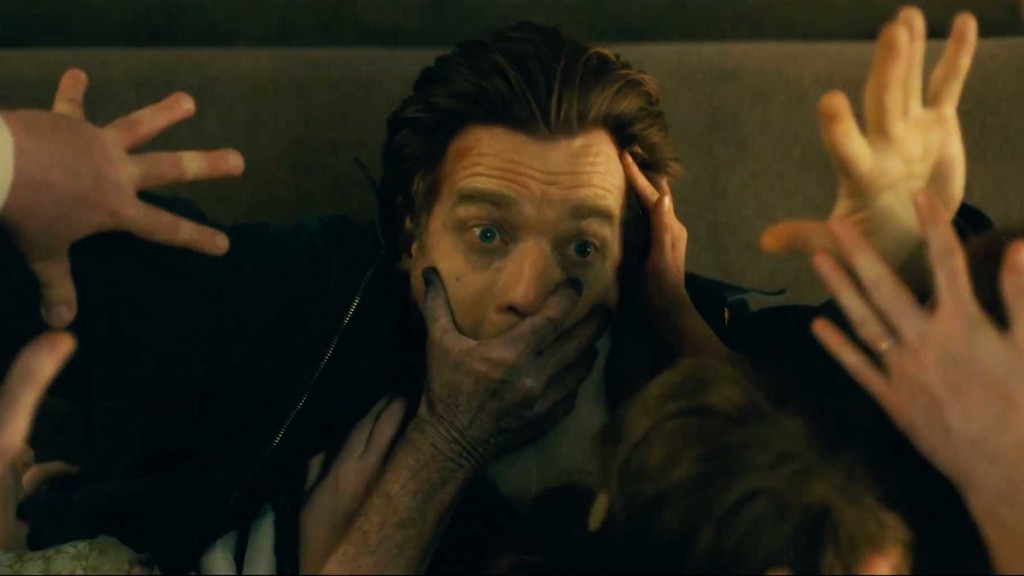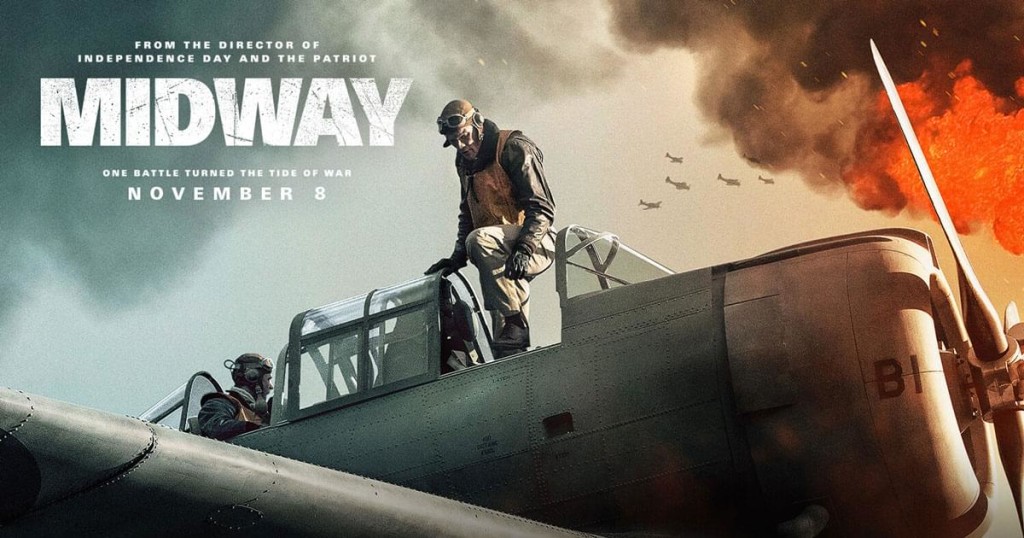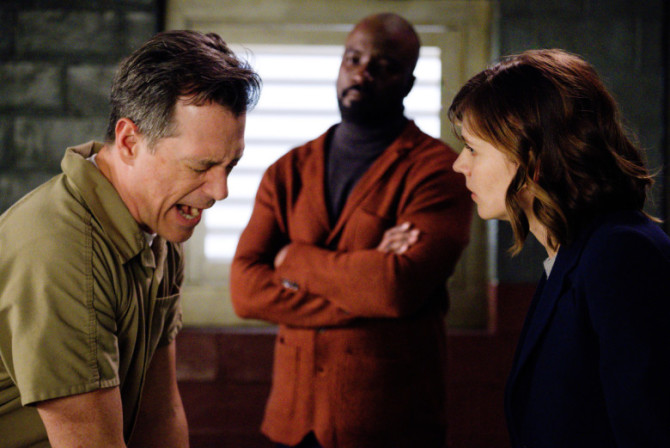I wanted to congratulate the Amateur Showdown winner this weekend but when I went to check the vote, I saw that it was the closest Amateur Showdown we’ve had all year! Four scripts are all within a stone’s throw of each other. I’m going to extend the voting out one more day. Head over there, read, and vote if you haven’t already. I’ll review the winner Friday.
Also remember that we have ACTION GENRE SHOWDOWN Friday, November 22 and HOLIDAY GENRE SHOWDOWN December 13. Get me your scripts in by 6pm Pacific Time the 21st and the 12th if you want to enter. PDFs should be sent to carsonreeves3@gmail.com with your title, genre, logline, and a pitch to myself and potential readers why you believe your script deserves a shot. Good luck!
Okay, let’s jump into the box office, shall we?
Everybody in the industry is BAFFLED this morning that Dr. Sleep tanked at the box office.
Everybody, that is, but me.
Dr. Sleep violates one of the biggest screenwriting rules there is. In fact, I might argue this is THE most important screenwriting rule. Now in fairness to Dr. Sleep, it wasn’t created to be a movie. It was a novel. It only became a movie once “It” became a monster hit. It also didn’t help that this is Stephen King’s second worst title ever (behind Mr. Mercedes). When I see the title, “Dr. Sleep,” I’m assuming it’s a movie about a doctor who specializes in sleep disorders? That’s not a topic I’m intrigued by.
The answer should’ve been obvious to Warner Brothers why this movie tanked since they’re usually pretty sharp about these things. What was the problem? NOBODY KNEW WHAT THE MOVIE WAS ABOUT. When you watched any marketing material about Dr. Sleep, you didn’t understand what the story was.
What is the story? I’m not asking people who have read the novel. I’m talking to everybody else. Did you know what this was about? Cause I didn’t. And I’m someone who follows every single project in Hollywood. I can only imagine what John in Iowa is going to think after seeing this trailer. There is no clear goal. There’s no clear story. It’s a hurricane of imagery without a point.
In order to drive this home, I’ll give you the counter-example: “It.” That movie was about a crazy clown killing kids. Everybody who watched the It trailer understood that. That’s why so many people went to see it. And this is why it’s so important to get this right in your screenwriting. When you’re conceiving of a screenplay, you must imagine the trailer and know that it will be CLEAR AS DAY what your movie is about to the audience. If you don’t have that basic requirement in place, nobody’s going to produce your script (unless you happen to have sold 200 million novels, of course).
As for the rest of the box office, Midway surprised everyone by taking the number 1 slot. I want to tell a quick story about this one. The screenwriter for Midway, Wes Tooke, first sent me a script a decade ago. And I liked it a lot. I even sent it to a few producers but nothing came of it. I knew he was talented though. Then, for many years, I didn’t hear from him and I wasn’t even sure he was still writing. But apparently, he kept writing, kept pushing, kept getting his stuff out there. And now he’s the SOLE SCREENWRITER for a number 1 movie. That’s incredible. And I’m so happy for Wes because I knew he was talented and it’s a testament to the power of perseverance. Let that be a lesson. It CAN HAPPEN. But you gotta keep pushing.
Last Christmas, which finished fourth at the box office with 11 million dollars, has its own issue. When you watch the trailers, the main character, the girl, felt really angry. The reason for that, I think, is there’s a subtle movement going on where writers are trying to break the belief that men are allowed to be unlikable in movies but women aren’t. This rule has been uttered in many a studio office over the last 50 years. But here’s what these writers are overlooking. If you’re trying to break a belief out of anger, out of, “I’m going to prove something,” – it’s not going to work. Audiences aren’t with you on this ‘change the world’ stuff. All they care about is being entertained. So if you want to break the belief, that’s great. But you have to be smart about it. You have to find ways to do what you want to do but still keep the audience on your side. I’m sorry but this character came off as an extremely unlikeable person in the trailer and it was a big reason why I had no interest in the movie.
Joker continues to dominate and is about to hit the 1 billion dollar mark worldwide. You may be saying, “This has to be the most profitable movie of all time, right?” It cost 50 million dollars to produce and it’s made a billion! It’s a good question. I’m not sure. If you’re going by ratio of investment to return, it’s not even in the ballpark. I think Paranormal Activity, which cost 50 grand to make, made 150 million. But as far as pure profit, I’m thinking Joker has to be up there near the top. It’s amazing when you think about it. They took a character piece drama – a genre that tops out in the 80 million dollar range – and they made a billion dollars with it. It’s going to be fascinating to see how this changes Warner Brothers’ comic book movie approach. And other studios as well. Who doesn’t want to cut their comic book production costs down by 80%? Or is Joker that lightning in a bottle anomaly never to be repeated again?
Our next topic is one I breach with a lot of respect. Film Riot is the best filmmaking channel on Youtube. Period. It’s top-rank stuff. Recently, the head of Film Riot, Ryan, made a short horror film in the hopes of turning it into a feature. That’s why I want to talk about it today. If you caught October’s newsletter, you may remember me discussing Christopher McQuarrie’s focus on writers making their own movies. I said that if you can’t afford to make a feature, you should shoot something from your script to show the potential of the project in order to attract investors. That is what Ryan did. And here’s the short.
It should be noted that Ryan is coming from the opposite position as all of us. This is a man who studies directing religiously. Whereas everyone here focuses on writing. So you guys have just as well trained an eye as I do about this script’s problems. However, I still want to address them because there’s a giant lesson to be learned from all this.
The problem with There Comes A Knocking is that it’s based on an extremely cliche horror event – a scary knock on the door. The scary knock on the door has literally been in 99% of all horror movies. Therefore, this short is showing us a scene we’ve watched dozens if not hundreds of times already. How is that going to be compelling? When it comes to concepts, you have to give the audience something unique. That’s what makes people care – is that the something is different, and therefore, exciting.
But there’s a much bigger lesson to learn from this. If you’re going to shoot a scene from your script with the goal to get investors interested, you don’t want to do it like this. You don’t want to take a random scene or a random sequence and shoot it. Because the audience isn’t going to know the context and therefore they’re not going to understand what they’re watching. Instead, you want to find the best scene you can find in your script THAT CAN BE TURNED INTO A SHORT FILM. That means not only is the scene good, but you can rewrite it into a self-contained short film that makes sense on its own.
That’s the problem with There Comes A Knocking. It doesn’t work on its own. There’s no proper build up, conflict, or resolution. It’s more a couple of exposition shots and then a jump scare. You want to think more like Cargo…
Clear beginning, clear middle, and clear end. Because people aren’t going to care how good your shot composition or lighting or production design are. All of those things immediately melt into the background of a viewing experience. The only thing that matters is HOW YOU MAKE THE VIEWER FEEL. If they ENJOY what they’ve seen, they will want to work with you. And a complete story from start to finish is the best chance you have at achieving this.
With that said, I remain a huge Film Riot fan. But someone needs to tell Ryan to put his next script up on Amateur Showdown. 20 people here would’ve been able to identify and help him fix these mistakes in a single weekend.
Finally, I want to share with you a new show I’ve been watching. It’s a show that not many people have picked up on yet because there are 17,000 shows out there and who has time for yet another obsession!? But a couple of people I respect mentioned “Evil,” to me. I didn’t bother checking it out at first only because it was a network show and all network shows have low ceilings. The last network show I got into was The Good Wife. Even if you’re like me and don’t like procedurals, that show was exceptionally written.
Anyway, I begrudgingly paid $1.99 to download the pilot for Evil and started watching it. To my surprise, I was into it. And then, after ten minutes, I was more into it. And then after another ten minutes, I was hooked. That never happens to me. Because of what I do, my brain is always in analysis mode. But that mode had been deactivated. All I cared about was what happened next in this great pilot! Out of curiosity, I looked up who created the show. And lo and behold, it was none other than Michelle and Robert King, THE CREATORS OF THE GOOD WIFE.
It was a reminder to me that good writers are good writers no matter what they’re writing. They understand how to construct interesting characters, how to construct compelling scenes. And one of the more underrated things that good writers do is they consistently surprise you. You think you know who killed someone or who’s lying but the writers are always one step ahead of you. That’s my experience with Michelle and Robert King.
For those who don’t know, Evil is about a clinical psychologist, Kirstin, who gets recruited by a priest, Mike, to investigate a demonic possession of a man on trial for murder. It’s one of those X-Files situations where Kristin doesn’t believe in this stuff while Mike does. So she’s always convinced there’s a logical explanation for whatever weird stuff happens.
In a scene where she’s interviewing the murderer, he gives her impossible details about her life that he can’t know. Literally the only way for him to know is if there really is a demon inside of him. And I’m thinking to myself, “How are the writers going to give a rational explanation for this?” Yet through a series of carefully scripted scenes both before and after the interview, they did it. They came up with a logical reason for how he would know what he knew. And it’s moments like that where I know I’m dealing with good writers. With bad writers, I’m in control. I know what’s happening next. With good writers, they’re in control. They know what I’m thinking and they use it against me.
I don’t think I’ll ever get past the overly slick “broadcast” production look of these network shows. I much prefer the cinematic look of soemthing like Breaking Bad. But if you’re into possession stories at all, this is worth checking out. As far as I’m concerned, Michelle and Robret King are the best writers on network television.
Oh, last thing! I don’t know how this Disney Channel thing is going to work. If they turn it on exactly at 12:01 am Tuesday and The Mandalorian is available, I will be reviewing that tomorrow. But if they don’t get it up until later in the morning, then I’ll review it on Wednesday. Can’t wait!




